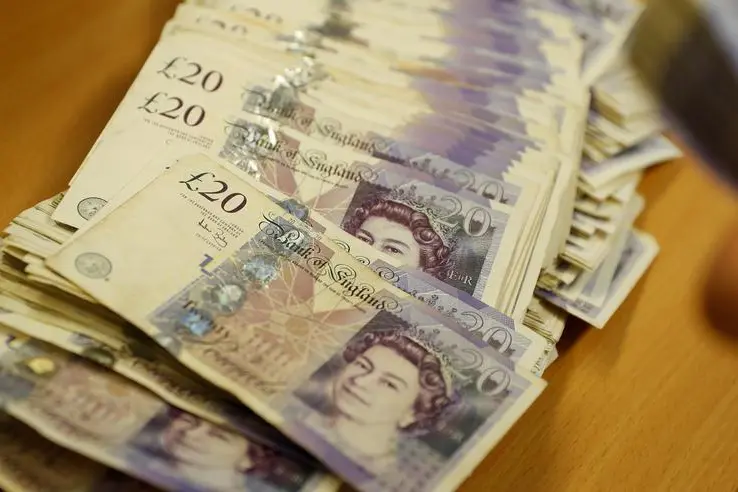PHOTO
The pound fell on Monday as rising COVID-19 cases hurt global risk appetite, but futures data showed the biggest net long position on the pound since March 2020, as speculators remained bullish about the British currency's prospects.
Global markets started the week "risk-off", as escalating COVID-19 infections took precedence over optimism about vaccinations. The pound was among the risk-sensitive currencies to fall, while the safe-haven dollar edged up slightly.
The pound has fallen overall against the dollar so far this year but, after a no-deal Brexit was avoided via a last-minute deal at the end of 2020, analysts generally expect the pound to strengthen throughout 2021.
Weekly CFTC futures data indicated that in the week to Jan. 12, the net speculative position on the pound versus the dollar rose to its most bullish in 10 months.
"The pound is a procyclical currency, and the UK usually profits from investment inflows whenever global growth is strong. After many years of Brexit stress and an undervalued pound this procyclicality might have an even bigger impact than normal," wrote UBS strategist Thomas Flury and economist Dean Turner in a note to clients.
At 1209 GMT, the pound was at $1.3553, down 0.3% against the dollar since the previous session's New York close.
Versus the euro, it was down around 0.1% at 89.03 pence per euro.
Jane Foley, head of FX strategy at Rabobank, took a more bearish view of the pound: "I don’t think the fundamentals in the UK are anything like good enough to really keep that better tone that we’ve seen, i.e. that move back below 90, going."
Foley said that the pound would be vulnerable to profit-taking over the next couple of weeks and months, as the UK economy, particularly the service sector, takes a hit from COVID-19 lockdown measures.
Britain's minister for vaccine deployment said the country's vaccine rollout is limited by "lumpy" manufacturing.
But he also said that the UK is vaccinating 140 people per minute against COVID-19 on average.
Brexit also presents a downside risk for the pound on the longer term, Rabobank's Foley said, because there is a lack of understanding among market participants about what is not covered by the deal reached between the UK and European Union.
More than twenty shellfish trucks parked near the British parliament and Prime Minister Boris Johnson's Downing Street residence on Monday to protest against post-Brexit bureaucracy that they say has stopped them exporting to the EU.
(Reporting by Elizabeth Howcroft; Editing by Giles Elgood, William Maclean) ((Elizabeth.Howcroft@thomsonreuters.com; +44 02075427104;))





















